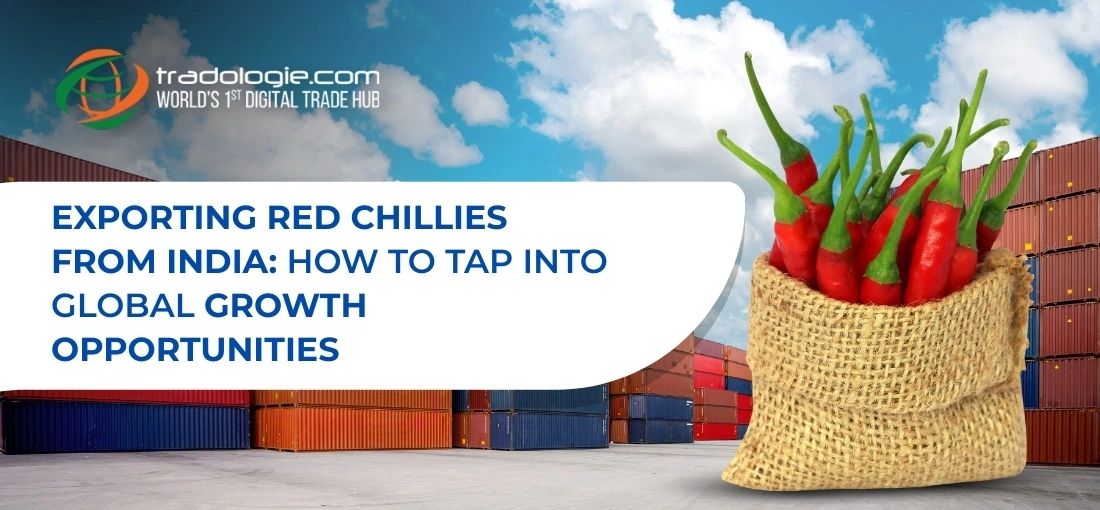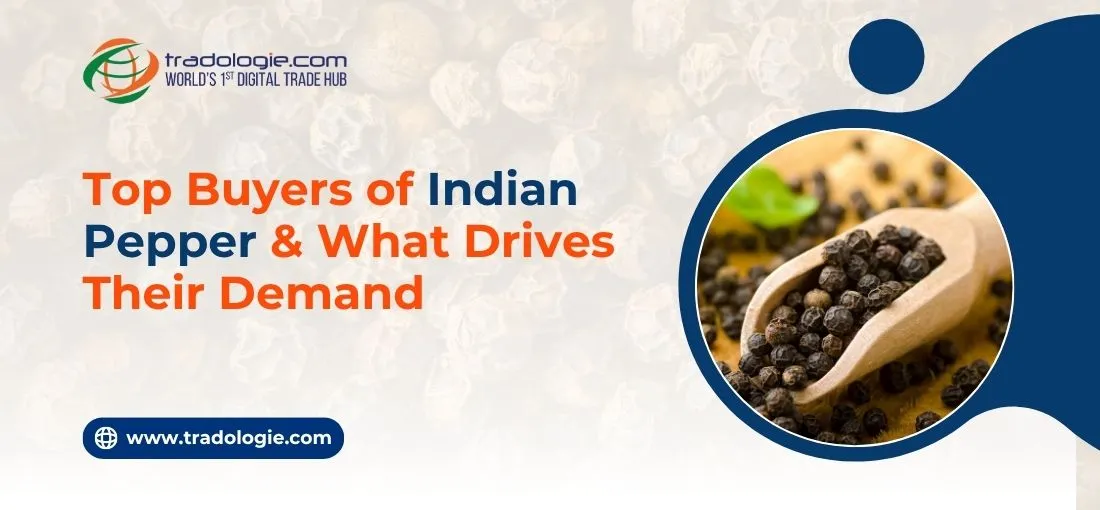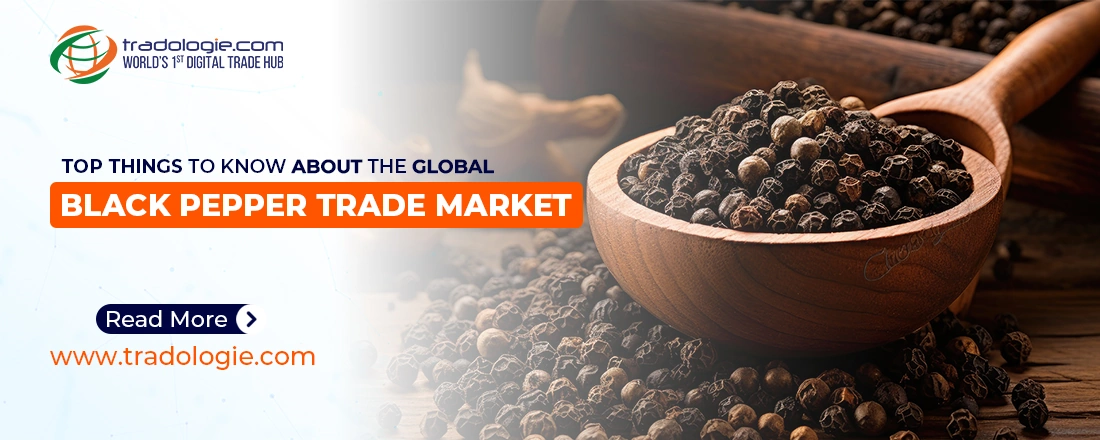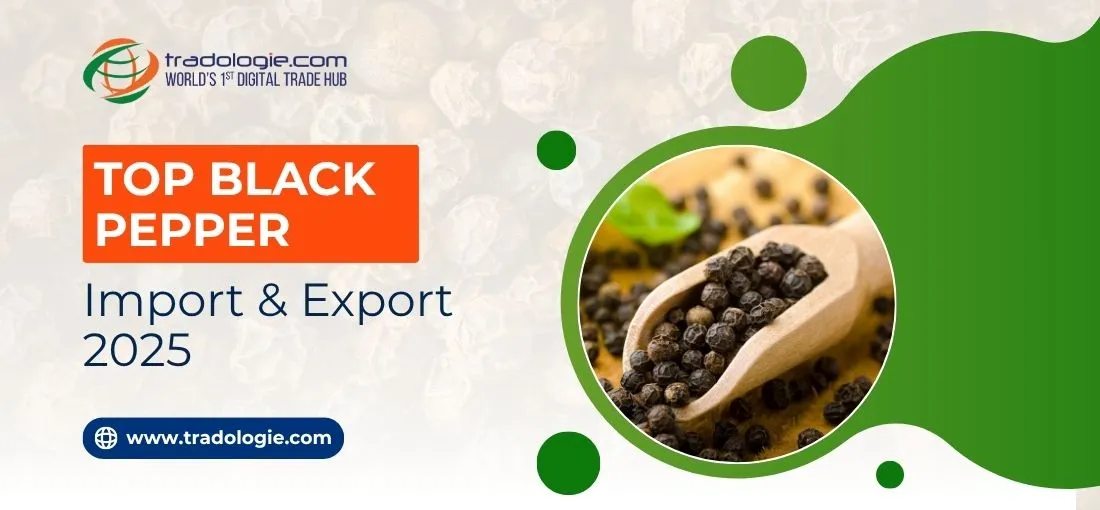Mapping Global Demand: Industries Driving Clove Imports Worldwide
Any spice that has a strong essence or natural colour enjoys a high commercial value in the global food commodity trade market. That's the reason cloves occupy a unique position and witness a niche demand among international buyers. In fact, beyond their retail identity as a kitchen spice, cloves are an essential raw material for structured industries like tobacco processors to FMCG spice manufacturers, and pharmaceutical industries. Such industries demand consistent quality and timely delivery directly influence production cycles.
This informative blog piece will provide some interesting information on the top industries that drive its demand globally. So, let's get the ball rolling.
Global Market and Size of Clove?
In 2023, the global clove trade was valued at $681 million, underscoring its role in structured B2B procurement pipelines across industries. Madagascar led as the primary exporter with $339 million. In comparison, Indonesia and Comoros followed at $95 million and $65.6 million, respectively, leveraging seasonal harvests to meet contractual export commitments.
On the import side, Indonesia topped the chart as the top clove importer with $199 million in purchases, driven by its kretek tobacco manufacturing sector, which relies on consistent, high-oil-content clove inputs. India's imports stood at $141 million, reflecting demand from its organized spice processing and FMCG industries. Singapore imported $51.1 million, reinforcing its position as a regional distribution and re-export hub for industrial processors in Southeast Asia.
Tobacco Processing: The Backbone of Industrial Clove Demand
Indonesia's clove cigarette sector, which is commonly known as kretek, exemplifies cloves role in industrial applications. It is pretty interesting to note that, despite being a major producer, Indonesia is the world's largest importer of cloves. This is mainly due to the specific high-oil-content and moisture parameters required for kretek manufacturing.
Procurement heads at tobacco processing units are obligated to secure consistent shipments that aptly align with production schedules. They constantly seek clove exporters who provide reliable quality grading, traceable documentation, and timely shipment.
Price discussions in this segment, just like any other sector, are directly proportional to volume commitments and delivery adherence. The structured procurement cycles dominate transactions; however, the presence of middlemen is still a big challenge.
Food Processing and FMCG Integration
In India, cloves are integrated as a critical component within the spice processing industry, which supplies large FMCG houses, organized retailers, and bulk condiment manufacturers. Cloves are not purchased simply as a commodity but as an industrial input where batch consistency, ASTA colour values, and contamination-free supply are non-negotiable.
Clove Importers prefer suppliers who can demonstrate operational capabilities through third-party certifications, traceable shipment documentation, and the ability to align supply schedules with domestic processing windows, particularly around seasonal demand upticks.
Pharmaceutical Extraction and Personal Care Segments
Clove oil extraction, especially for eugenol, underpins the pharmaceutical and personal care industries. Singapore’s role as an import hub aligns with its re-export structure, catering to the regional demand for eugenol used in dental formulations, pain relief products, and aromatherapy oils.
Industrial buyers in this segment evaluate cloves exporters on oil yield consistency, cleanliness, and supply flexibility, working under pre-negotiated contracts that prioritize quality and regulatory compliance to ensure efficient processing.
The Strategic Role of Trade Hubs
It is important to note that Singapore is not a major cultivator of cloves, but functions as a re-export hub in the global export channel. It offers a well-established warehousing and flawless logistics ecosystem for cloves that are poised to be exported to secondary Asian markets such as Malaysia, Thailand, and Vietnam. Aligning with clove distributors that are based out of Singapore requires quick and highly precise shipment scheduling, flexible container load management, and disciplined paperwork handling to avoid supply chain disruptions for downstream industrial buyers.
Logistics Management and Price Benchmarking
Moisture management and container condition monitoring are critical in clove shipments, especially when sourcing from Madagascar during humid months. Industrial buyers in tobacco and spice processing frequently track global price indices and harvest timelines to optimize contracting windows, balancing between securing competitive rates and ensuring supply continuity.
For structured B2B procurement, price benchmarking is not simply about seeking the lowest quote; it involves evaluating suppliers on shipment reliability, documentation accuracy, and quality adherence to minimize operational disruptions and claims disputes.
Outlook for Industrial Buyers
Clove demand in structured B2B markets remains steady, which is driven by consistent needs in tobacco manufacturing, FMCG spice production, and pharmaceutical extraction. However, buyers continue to keep an eye on Madagascar’s production swings and changing tobacco market policies, as these factors could impact future pricing and procurement plans.
Conclusion
Cloves are more than a retail spice. They are a structured industrial commodity that powers critical sectors within the tobacco, FMCG, and pharmaceutical industries. The pathway to efficient procurement without any hassle lies in prioritising shipment reliability, supplier competency, and quality assurance for bulk clove importers. This should be done by aligning supply strategies with the operational demands of a dynamic global trade environment, which is driven by specifications.

.webp)



